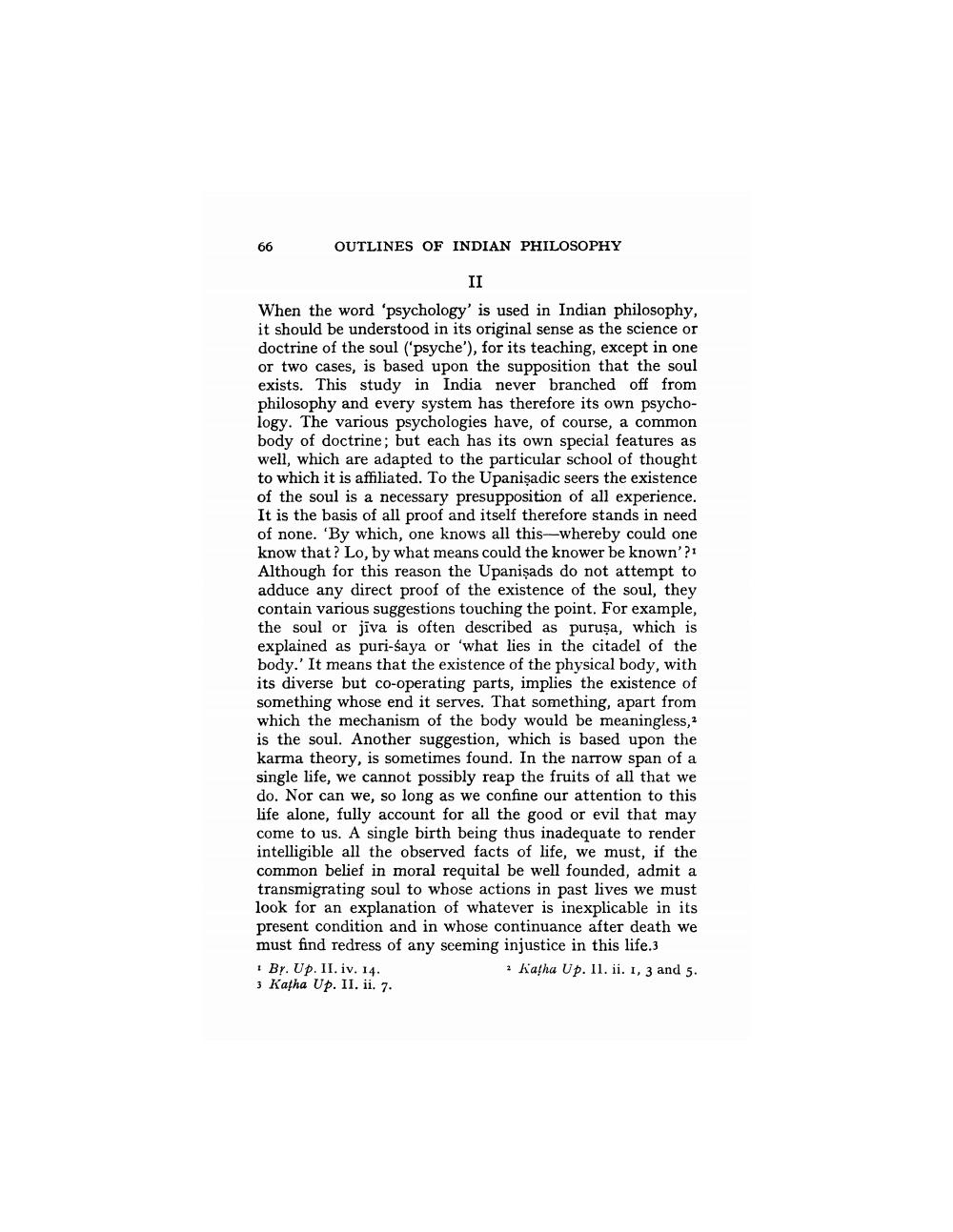________________
66
OUTLINES OF INDIAN PHILOSOPHY
II
When the word 'psychology' is used in Indian philosophy, it should be understood in its original sense as the science or doctrine of the soul ('psyche'), for its teaching, except in one or two cases, is based upon the supposition that the soul exists. This study in India never branched off from philosophy and every system has therefore its own psychology. The various psychologies have, of course, a common body of doctrine; but each has its own special features as well, which are adapted to the particular school of thought to which it is affiliated. To the Upanisadic seers the existence of the soul is a necessary presupposition of all experience. It is the basis of all proof and itself therefore stands in need of none. 'By which, one knows all this-whereby could one know that? Lo, by what means could the knower be known'?1 Although for this reason the Upaniṣads do not attempt to adduce any direct proof of the existence of the soul, they contain various suggestions touching the point. For example, the soul or jiva is often described as purușa, which is explained as puri-saya or 'what lies in the citadel of the body.' It means that the existence of the physical body, with its diverse but co-operating parts, implies the existence of something whose end it serves. That something, apart from which the mechanism of the body would be meaningless, is the soul. Another suggestion, which is based upon the karma theory, is sometimes found. In the narrow span of a single life, we cannot possibly reap the fruits of all that we do. Nor can we, so long as we confine our attention to this life alone, fully account for all the good or evil that may come to us. A single birth being thus inadequate to render intelligible all the observed facts of life, we must, if the common belief in moral requital be well founded, admit a transmigrating soul to whose actions in past lives we must look for an explanation of whatever is inexplicable in its present condition and in whose continuance after death we must find redress of any seeming injustice in this life.3
2 Katha Up. 11. ii. 1, 3 and 5.
1 Br. Up. II. iv. 14.
3 Katha Up. II. ii. 7.




